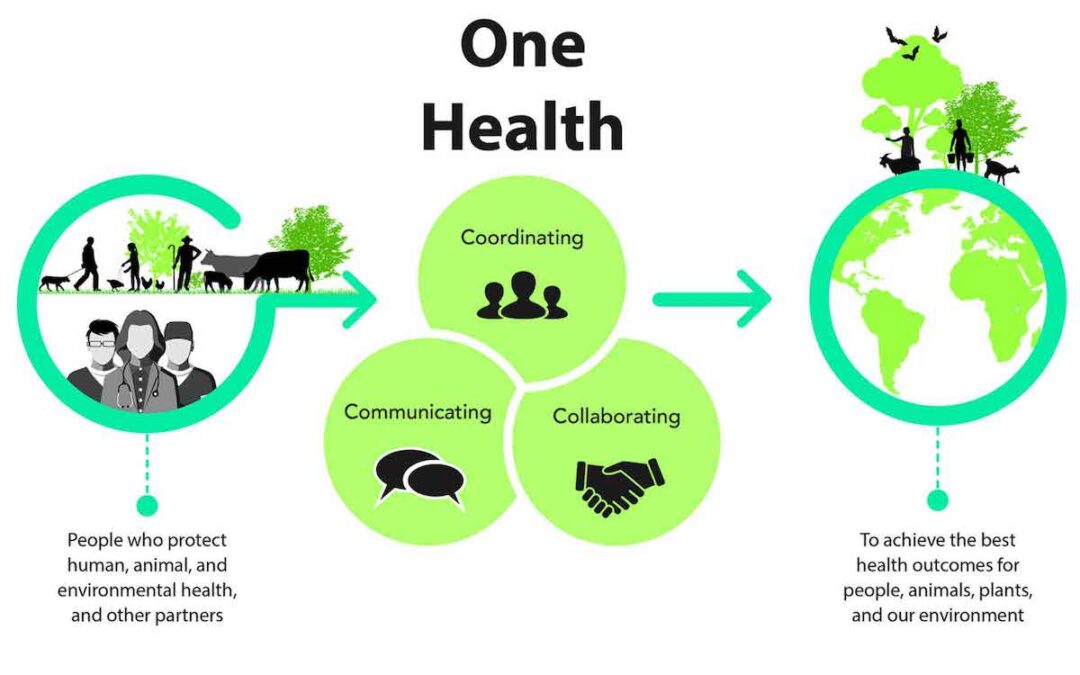The current Ebola virus disease outbreak in Uganda, and the one going on in DRC are uncomfortable reminders that the world is not anywhere near as safe as we would like it to be. These two are coming hot on the heels of the COVID-19 pandemic and the Monkeypox outbreak.
November 3rd is International One Health Day. One Health as an approach that convenes knowledge, expertise and competency from multiple disciplines to address complex health and development challenges, is gaining prominence and significance in the face of repeated and increasing pandemics and disease outbreaks.
In the recent past, especially during the COVID-19 pandemic, the global elite have been engaged in hundreds if not thousands of conversations about One Health and how the current workforce needs to be de—skilled and re-skilled into one that is competent to work out of the box. Many publications, webinars, newspaper opinion pieces and commentaries, blogs and in-person meetings have been dedicated to these conversations. Efforts to take these conversations to the community level have either not been well-documented or are minimal. Looking at how disease outbreaks start, spread and are perpetuated, it is becoming urgent that we shift these conversations to the level where the real action is.
The need to progress beyond these conference room and Zoom debates to actually work at ground level to build understanding and appreciation of the multi-dimensional nature of health and disease outbreaks and transmission. In culturally well-invested settings like Uganda and most of Africa, it is especially important to work with the custodians of this cultural beliefs and practices to appreciate the interface between disease and culture. Also important is people understanding the simple things like handwashing, using pit latrines and clearing bushes that can actually make a whole lot of difference in health outcomes at household and community level. Governments can significantly cut health budgets for curative care, if at community level we focus on how the One Health approach can be effectively deployed for disease control and prevention.
Actors like the Africa One Health University Network (AFROHUN) are doing a fantastic job in developing a One Health workforce and sending students to work with communities to identify challenges of a One Health nature and work through solutions to these challenges, together. However, judging from what we are seeing with the disease outbreaks we are experiencing currently, empowering communities to own the epidemic and the response is still a major challenge, and key to this is community understanding and appreciation of these interconnections. Responding to a tweet we posted yesterday on what can possibly be done to ensure community agency, we got a few interesting responses. The Journal of Comparative Pathology noted the need for a clear strategy and implementation plan – for the good of all (animal, mankind and the environment). Chris Mwavuna, another Tweeter follower noted that for One Health to be significant and effective, ‘let us minimize the boardroom meetings, let us include the foot soldiers on the ground:
community health workers, animal health practitioners, environmentalists, students, community leaders and youth groups. It will work’.
Today I saw a tweet from the WHO Director General @DrTedros appealing to donors to commit and put more money on the Ebola response in Uganda. We believe if partners and governments committed more funds to creating community understanding of such disease outbreak scenarios especially how they can be prevented, we would probably be investing more wisely. Another wise investment would be putting in place education policies geared towards multidisciplinary training programs that develop a One Health workforce.
By Milly Nattimba
AFROHUN Head Communications and Knowledge Management

